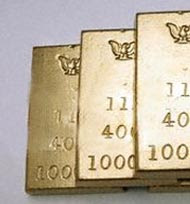By Yoshiaki Nohara and Ron Harui
May 25 (Bloomberg) -- The euro weakened for a second day against the yen and dollar as signs the European debt crisis is spreading revived concern the region’s recovery will slow.
The single currency dropped to within one yen of its weakest in more than eight years after the International Monetary Fund urged Spain to do more to overhaul its ailing banks, adding to speculation Europe’s financial institutions face more losses. The yen strengthened as a decline in Asian stocks boosted demand for Japan’s currency as a refuge. The won slumped as tensions escalated between the two Koreas over the sinking of a warship from the South’s navy in March.
“I’m concerned about what policy makers can do to contain the debt crisis should it spread from Greece to bigger nations like Spain and Italy,” said Tetsuya Inoue, chief researcher for financial markets at Nomura Research Institute, a unit of Japan’s largest brokerage. “Economic growth can’t help but lose momentum. The euro will stay under downward pressure.”
The euro fell 1.3 percent to 110.29 yen as of 6:45 a.m. in London from yesterday in New York. The common currency dropped to $1.2283 from $1.2372. The dollar was at 89.81 yen from 90.29 yen, and climbed to $1.4339 per pound from $1.4425.
The 16-nation euro touched a four-year low of $1.2144 on May 19, and the weakest since 2001 at 109.51 per yen on May 20.
Spain’s banking industry “remains under pressure,” as consolidation has been “too slow,” the Washington-based IMF said in a report yesterday after a regular review of Spain.
“We fully support” the new austerity measures, it said, referring to Spain’s plans to rein in its budget deficit with the deepest spending cuts in three decades.
Spain’s Banks
Four Spanish savings banks plan to combine to form the nation’s fifth-largest financial group with more than 135 billion euros ($166 billion) in assets, as regulators push ailing lenders to merge with stronger partners.
“Looking ahead, we suspect contagion risks from the European sovereign debt crisis will remain front-brain for markets,” said Mike Jones, a currency strategist at Bank of New Zealand Ltd. in Wellington. “With negative momentum firmly ingrained, we wouldn’t be surprised to see the euro re-test recent lows around $1.22 in coming sessions.”
The Bank of Spain said on May 22 it appointed a provisional administrator to run CajaSur, a savings bank crippled by property-loan defaults. The seizure is the first under a state- financed rescue plan that Standard & Poor’s estimates may cost as much as 35 billion euros, increasing the burden on Spain’s finances as the government tries to reduce its budget deficit.
‘Widespread Disruption’
Stresses in Spain’s banking system are intensifying concern that the Greek debt crisis may spread, Mohamed A. El-Erian, whose company runs the world’s biggest mutual fund, said in an interview with PBS.
“The minute you introduce strains in the banking system, there’s always a fear that governments will be behind the curve and that you can get contagion,” El-Erian, co-chief investment officer at Pacific Investment Management Co., said on PBS’s Nightly Business Report. “You can get widespread disruption.”
Europe’s currency has lost 6.9 percent this year, based on Bloomberg Correlation-Weighted Indexes. The dollar has risen 10 percent, and the yen has advanced 15 percent.
Japan’s currency rose versus all 16 major counterparts as the MSCI Asia Pacific Index shares dropped 2.8 percent.
“Increasing concerns about a slowdown in economic growth weigh on stocks,” said Yoshiaki Ota, head of the foreign- exchange trading group at Sumitomo Mitsui Banking Corp. in Tokyo. “When stocks fall, investors rush to sell cross currencies against the yen as a knee-jerk reaction.”
Commodities Prices
The yen typically strengthens in times of financial turmoil as Japan’s trade surplus makes the currency attractive as it means the nation does not have to rely on overseas lenders.
Australia’s dollar fell for a second day as iron-ore prices dropped before steelmakers in China and South Korea, the world’s
largest- and sixth-biggest producing nations, meet today in Beijing to discuss raw material prices. Australia is the world’s biggest exporter of iron ore.
“Overall sentiment is still pretty weak and people are cutting back on risk positions,” said Khoon Goh, a senior economist at ANZ National Bank Ltd. in Wellington. “Any news reports suggesting further downward pressure on commodity prices will definitely be taken as a negative for Aussie.”
Australia’s currency fell 1 percent to 81.81 U.S. cents, and lost 1.5 percent to 73.48 yen.
Korea Tensions
The won weakened amid concern conflict between on the Korean peninsula could escalate. O Kuk Ryol, vice chairman of North Korea’s National Defense Commission, said the nation is ready to counter any attacks from South Korea, according to North Korea Intellectuals Solidarity, a Seoul-based group run by defectors from the communist country. Yonhap News agency reported on the group’s posting earlier today.
“Tensions between the North and South heightened today, with widespread panic, coupled with weaker equity markets driving massive dollar buying interest,” said Bernard Yeung, head of foreign-exchange trading at National Australia Bank Ltd.
in Hong Kong.
South Korean President Lee Myung Bak said yesterday the country will push for United Nations censure against North Korea for the March 26 sinking of a naval ship, which killed 46 sailors. A multinational team concluded on May 20 that North Korea fired a torpedo to split apart the 1,200-ton Cheonan.
The won slumped 3.7 percent to 1,260.60 per dollar, according to data compiled by Bloomberg, after earlier reaching 1,277.85, the lowest since July 16.
Tuesday, May 25, 2010
Subscribe to:
Post Comments (Atom)

No comments:
Post a Comment